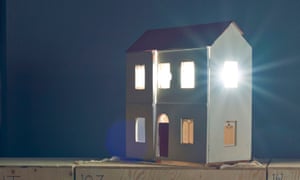A brilliantly wry poem about poetry that reaches farther into society than you might expect
House
I
Shall I sonnet-sing you about myself?
Do I live in a house you would like to see?
Is it scant of gear, has it store of pelf?
“Unlock my heart with a sonnet-key?”
Shall I sonnet-sing you about myself?
Do I live in a house you would like to see?
Is it scant of gear, has it store of pelf?
“Unlock my heart with a sonnet-key?”
II
Invite the world, as my betters have done?
“Take notice: this building remains on view,
Its suites of reception every one,
Its private apartment and bedroom too;
Invite the world, as my betters have done?
“Take notice: this building remains on view,
Its suites of reception every one,
Its private apartment and bedroom too;
III
“For a ticket, apply to the Publisher.”
No: thanking the public I must decline.
A peep through my window, if folk prefer;
But, please you, no foot over threshold of mine!
“For a ticket, apply to the Publisher.”
No: thanking the public I must decline.
A peep through my window, if folk prefer;
But, please you, no foot over threshold of mine!
IV
I have mixed with a crowd and heard free talk
In a foreign land where an earthquake chanced;
And a house stood gaping, naught to balk
Man’s eye wherever he gazed or glanced.
I have mixed with a crowd and heard free talk
In a foreign land where an earthquake chanced;
And a house stood gaping, naught to balk
Man’s eye wherever he gazed or glanced.
V
The whole of the frontage shaven sheer,
The inside gaped: exposed to day,
Right and wrong and common and queer,
Bare, as the palm of your hand, it lay.
The whole of the frontage shaven sheer,
The inside gaped: exposed to day,
Right and wrong and common and queer,
Bare, as the palm of your hand, it lay.
VI
The owner? Oh, he had been crushed, no doubt!
“Odd tables and chairs for a man of wealth!
What a parcel of musty old books about!
He smoked – no wonder he lost his health!
The owner? Oh, he had been crushed, no doubt!
“Odd tables and chairs for a man of wealth!
What a parcel of musty old books about!
He smoked – no wonder he lost his health!
VII
“I doubt he bathed before he dressed.
A brazier? – the pagan, he burned perfumes!
You see it is proved, what the neighbours guessed:
His wife and himself had separate rooms.”
“I doubt he bathed before he dressed.
A brazier? – the pagan, he burned perfumes!
You see it is proved, what the neighbours guessed:
His wife and himself had separate rooms.”
VIII
Friends, the goodman of the house at least
Kept house to himself till an earthquake came:
‘Tis the fall of its frontage permits you feast
On the inside arrangement you praise or blame.
Friends, the goodman of the house at least
Kept house to himself till an earthquake came:
‘Tis the fall of its frontage permits you feast
On the inside arrangement you praise or blame.
IX
Outside should suffice for evidence:
And whoso desires to penetrate
Deeper, must dive by the spirit sense –
No optics like yours, at any rate!
Outside should suffice for evidence:
And whoso desires to penetrate
Deeper, must dive by the spirit sense –
No optics like yours, at any rate!
X
“Hoity toity! A street to explore,
Your house is the exception! ‘With this same key
Shakespeare unlocked his heart,’ once more!”
Did Shakespeare? If so, the less Shakespeare he!
“Hoity toity! A street to explore,
Your house is the exception! ‘With this same key
Shakespeare unlocked his heart,’ once more!”
Did Shakespeare? If so, the less Shakespeare he!
This isn’t one of Robert Browning’s best-known works, and, for general readers, neither is the 1876 collection in which it originates, Pachiarotto and How He Worked in Distemper. Despite the title poem’s apparent focus on the Sienese painter and political rebel, Giacomo Pachiorotti (1474-1540), Browning’s aim here, and in the collection generally, is directed at his own adversaries. The collection was well received by contemporary readers, perhaps because they would have had fresher memories than ours for the original arguments.
House is dominated by metaphors of invaded privacy and biographical misreading. It vigorously expresses the poet’s opposition to autobiographical and confessional genres. At the same time, it can hardly fail to remind us of Browning’s devotion to the dramatic monologue. This adds a pleasurable layer of irony, since one of the significant devices in his treatment of the form is unintentional self-revelation. The speaker deceives himself, inadvertently spilling the truths or facts he consciously denies. Browning, speaking as himself in House, is both sincere and self-mocking. He has, after all, written personal poems despite this proclaimed distrust of them. The poem’s denial of the subjective is subjective.
The house of the poem is not simply metaphorical. Cultural tourism and the poetry industry are mocked. (“For a ticket, apply to the Publisher.”) Then there’s an interesting gear-shift: the speaker recollecting an actual house “in a foreign land”, which has been half-destroyed by an earthquake. The evocation is a stunning piece of poetic reportage: “The whole of the frontage shaven sheer, / The inside gaped: exposed to day, / Right and wrong and common and queer, / Bare, as the palm of your hand, it lay.” A xenophobic chorus of sightseers, their callous comments fired by the misinterpretation of what they see as “evidence”, has the authentic ring you’d expect from a poet with Browning’s ear for the vernacular and nose for English hypocrisies. It would be interesting to find out the identity of the owner of the wrecked house if Browning didn’t make him up.
Again, at the end of the poem, Browning refers to Wordsworth’s Scorn Not the Sonnet, the poem which provided the “sonnet-key” in the last line of stanza one: “Scorn not the Sonnet; Critic, you have frowned, / Mindless of its just honours; with this key / Shakespeare unlocked his heart … ” It’s a trenchant rebuttal in Wordsworth’s own lines – not of Shakespeare, of course, but of that diminishing assertion that the sonnets are merely or simply personal.
In its argument with Wordsworth, House plainly belongs to that often mistrusted breed, the poem about writing poetry. Browning does it with such rhetorical fire and style, though, we can surely be lenient, whether or not we entirely agree with him.






No comments:
Post a Comment